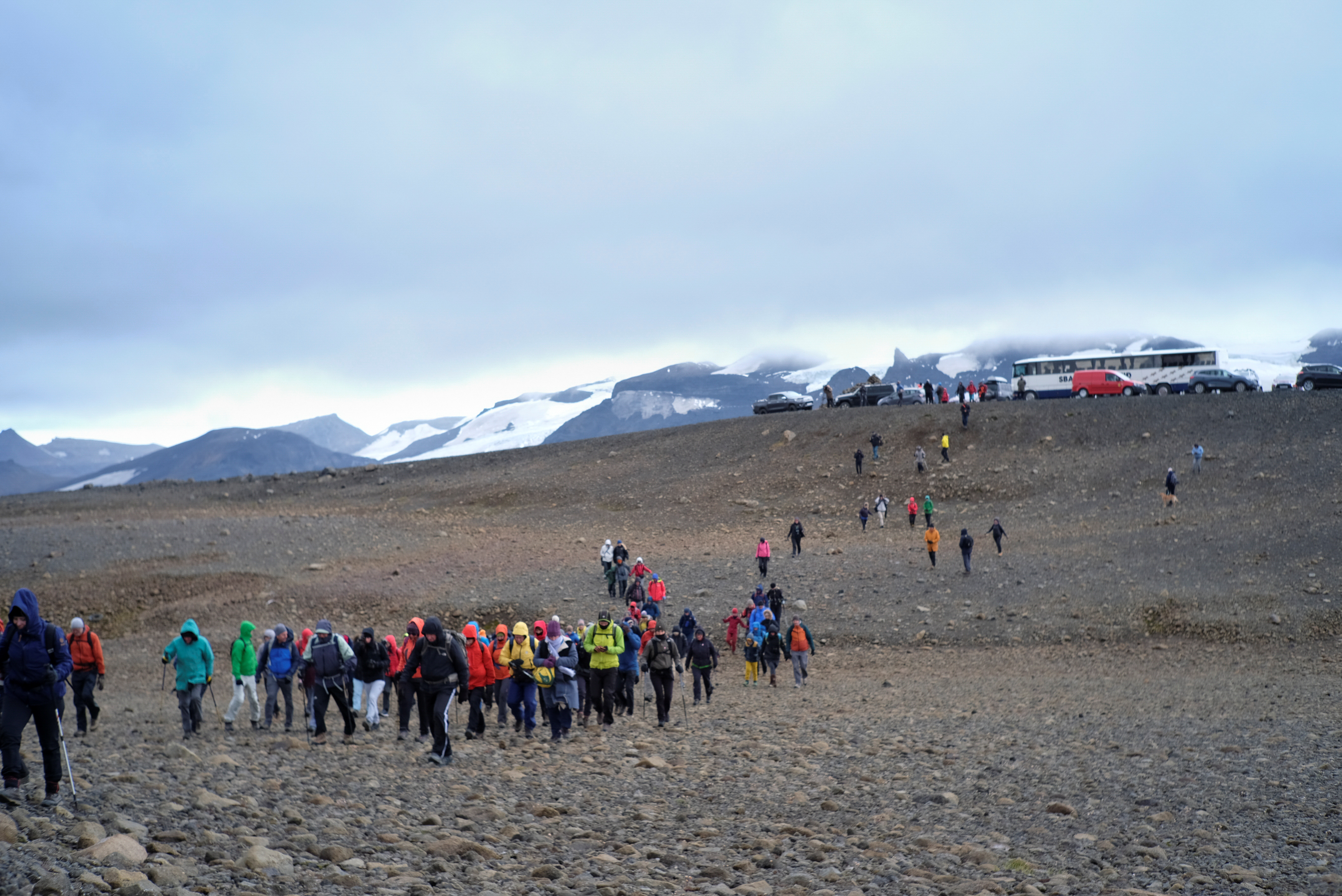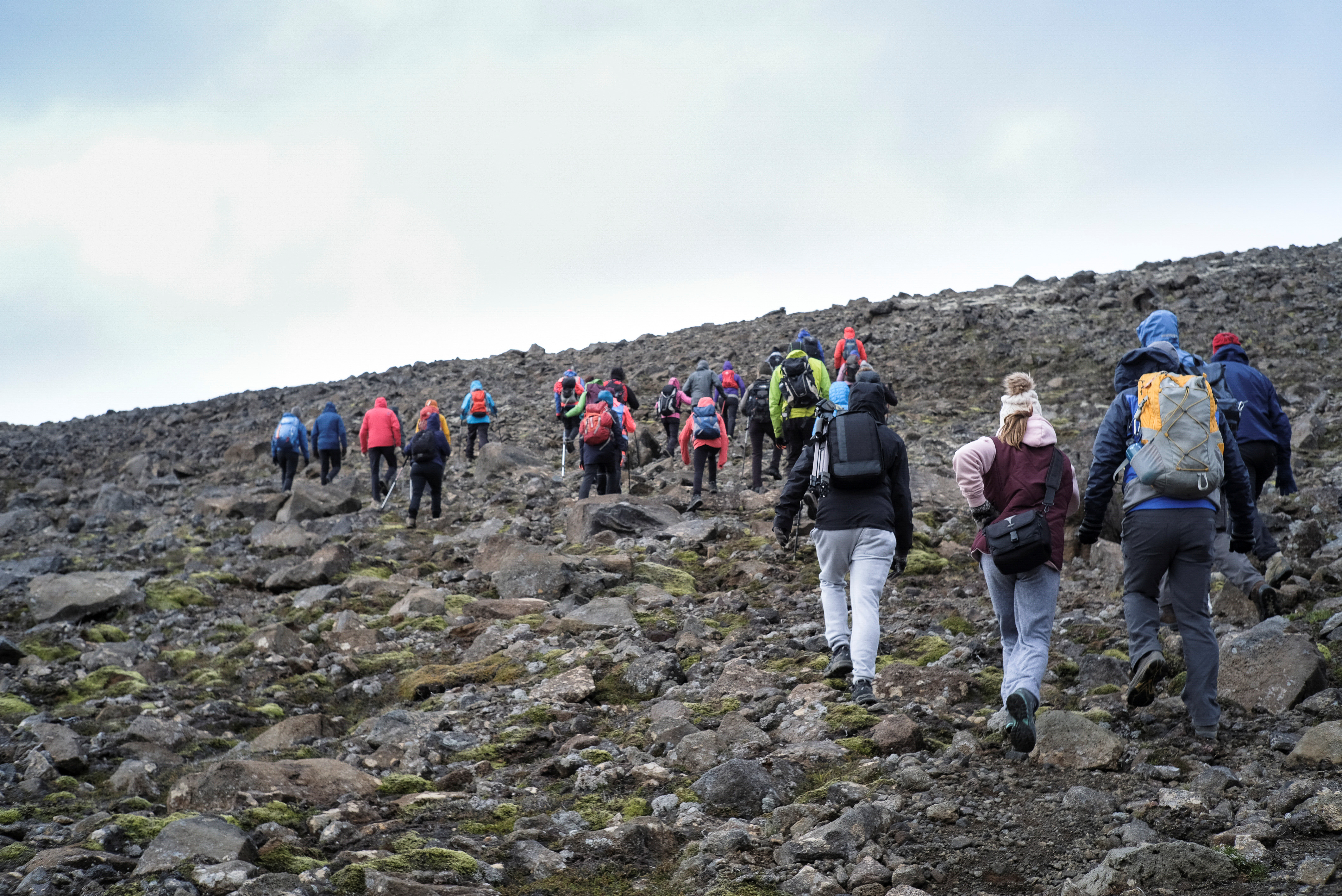Iceland unveils a memorial plaque for the first glacier it has lost
By 2014, Okjokull ice sheet failed to meet the criteria to be a glacier. It's the first glacier in Iceland to do so, but won't be the last.

COPENHAGEN — Iceland unveiled a plaque to its Okjokull ice sheet on Sunday, the first of the country’s hundreds of glaciers to melt away due to climate change.
Scientists see the shrinking of glaciers as one of many warning signs that the earth’s climate is lurching toward dangerous tipping points.
A ceremony to unveil the plaque was attended by scientists and locals at the glacier in west-central Iceland, which in 2014 no longer fulfilled the criteria to be classified as a glacier after melting throughout the 20th century.
“Ok (Okjokull) is the first Icelandic glacier to lose its status as a glacier. In the next 200 years all our glaciers are expected to follow the same path,” said the inscription on the plaque written by Icelandic author Andri Snaer Magnason.
“We know what is happening and what needs to be done. Only you know if we did it,” said the inscription, directed towards future generations.
According to satellite images from the NASA Earth Observatory, the glacier appeared as a solid-white patch (center left in the image below) in 1986, but in an image from Aug. 1 this year, only small dashes of white ice remained.
Icelanders call their nation the “Land of Fire and Ice” for its otherworldly landscape of volcanoes and glaciers, immortalized in literature. But the glaciers are melting and scientists say rising global temperatures are to blame.
“There is no longer any doubt that the climate in the Arctic is changing markedly and rapidly,” said Minik Rosing, professor at the University of Copenhagen.
“All of the Nordic countries comprise Arctic territories, where climate change has gone from theoretical predictions of the future to everyday reality,” he said.
Reporting by Jacob Gronholt-Pedersen.
